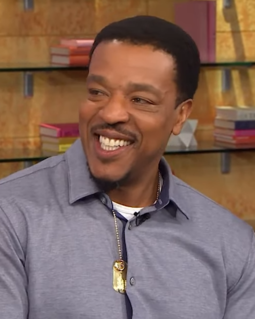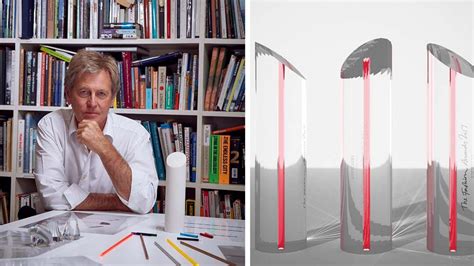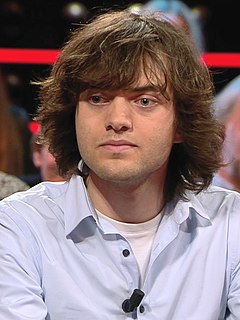A Quote by Nigel Gibson
The problem in Syria, I think, is that when there is so much violence, there is not only very little chance to create spaces for liberation, but also all talk is quickly swallowed up by it. People are trying to keep their heads down because they are being bombarded all the time.
Related Quotes
I think we have to knock out ISIS. Right now Syria is fighting ISIS. We have people who want to fight both at the same time. But Syria is no longer Syria; Syria is Russia and Iran, who she made strong, and Kerry and Obama made into a very powerful nation and very rich nation very, very quickly. Very, very quickly. I believe we have to get ISIS.
Spaces of liberation are, in a certain way, some kind of social spaces where people can not only get together and think about something else, but also act together. If you are thinking about an elemental solidarity, you are thinking about people acting together and taking decisions together, and thereby beginning to think about what sort of society they want to create. So, there is a need for liberated spaces; that is really difficult.
I've always been terrified of violence which is probably why I keep making violent films - I'm trying to exorcise some demons or something. My mum ended up bringing me up on the edge of a big estate in south London, so I was on the periphery of violence - a lot of football violence and stuff because I was a Millwall supporter. So I've always had a very healthy fear of it, yet at the same time a fascination. I think in all of my films that's a really strong subtext... people who are terrified by violence but are yet compelled by it as well.
A fence can be protective around your family - a familial fence. Then, there are the people who only know how to take, to abuse, to offend and they build fences to keep you out. They don't have time to talk, they don't have kind words, they only talk about themselves. They never give an olive branch or forgiveness - they create a fence because of their personality or behavior and they want to create a barrier to keep people out.
It'll be no use their putting their heads down and saying "Come up again, dear!" I shall only look up and say "Who am I then? Tell me that first, and then, if I like being that person, I'll come up: if not, I'll stay down here till I'm somebody else"--but, oh dear!' cried Alice, with a sudden burst of tears, 'I do wish they WOULD put their heads down! I am so VERY tired of being all alone here!
If you look at social movements in Latin America, there are spaces where alternative politics are thought about on the ground, at the grassroots level, but they are always under threat. The problem in North Africa and the Middle East is the politics of oil. It means that the spaces for truly grassroots politics, involving those masses of people excluded from high politics, are very quickly closed down. They are not really allowed any kind of autonomy to develop, and that seems to be the real problem, which gets us back to the neo-colonial relationship.
When we got down there were some agent provocateurs, if you've never heard of them, these are people sent in intentionally into a group to create chaos and dissension ... There were two we identified down there that were trying to foment violence on either side, trying to really create a confrontation. Any time this stuff happens there's going to be agent provocateurs come in.
'I know,' said Winter, 'but they don't know.' And he went on with a thought he had been having. 'A time-minded people,' he said, 'and the time is nearly up. They think that just because they have only one leader and one head, we are all like that. They know that ten heads lopped off will destroy them, but we are a free people; we have as many heads as we have people, and in a time of need leaders pop up among us like mushrooms.'
I don't think that Women's Liberation will change much though -- not because there is anything wrong with their aims, but because it is already clear that the whole world is being shaken into a new pattern by the cataclysms we are living through: probably by the time we are through, if we do get through at all, the aims of Women's Liberation will look very small and quaint.
The honey doesn't taste so good once it is being eaten; the goal doesn't mean so much once it is reached; the reward is no so rewarding once it has been given. If we add up all the rewards in our lives, we won't have very much. But if we add up the spaces *between* the rewards, we'll come up with quite a bit. And if we add up the rewards *and* the spaces, then we'll have everything - every minute of the time that we spent.
Let me just say you could end this violence within a very short period of time, have a complete ceasefire - which Iran could control, which Russia could control, which Syria could control, and which we and our coalition friends could control - if one man would merely make it known to the world that he doesn't have to be part of the long-term future; he'll help manage Syria out of this mess and then go off into the sunset, as most people do after a period of public life. If he were to do that, then you could stop the violence and quickly move to management.
People talk about [Bashar] Assad running Syria. He doesn't control his own country. He's down to about 20, 25 percent of the country. What is this fiction that he is somehow the only person who can save Syria? There's - with Assad there, there is no Syria. So that's what the Iranians and the Russians need to really begin to focus in on.
Being a mother is like trying to hold a wolf by the ears,” Gram said. “If you have three or four –or more – chickabiddies, you’re dancing on a hot griddle all the time. You don’t have time to think about anything else. And if you’ve only got one or two, it’s almost harder. You have room left over – empty spaces that you think you’ve got to fill up.


































